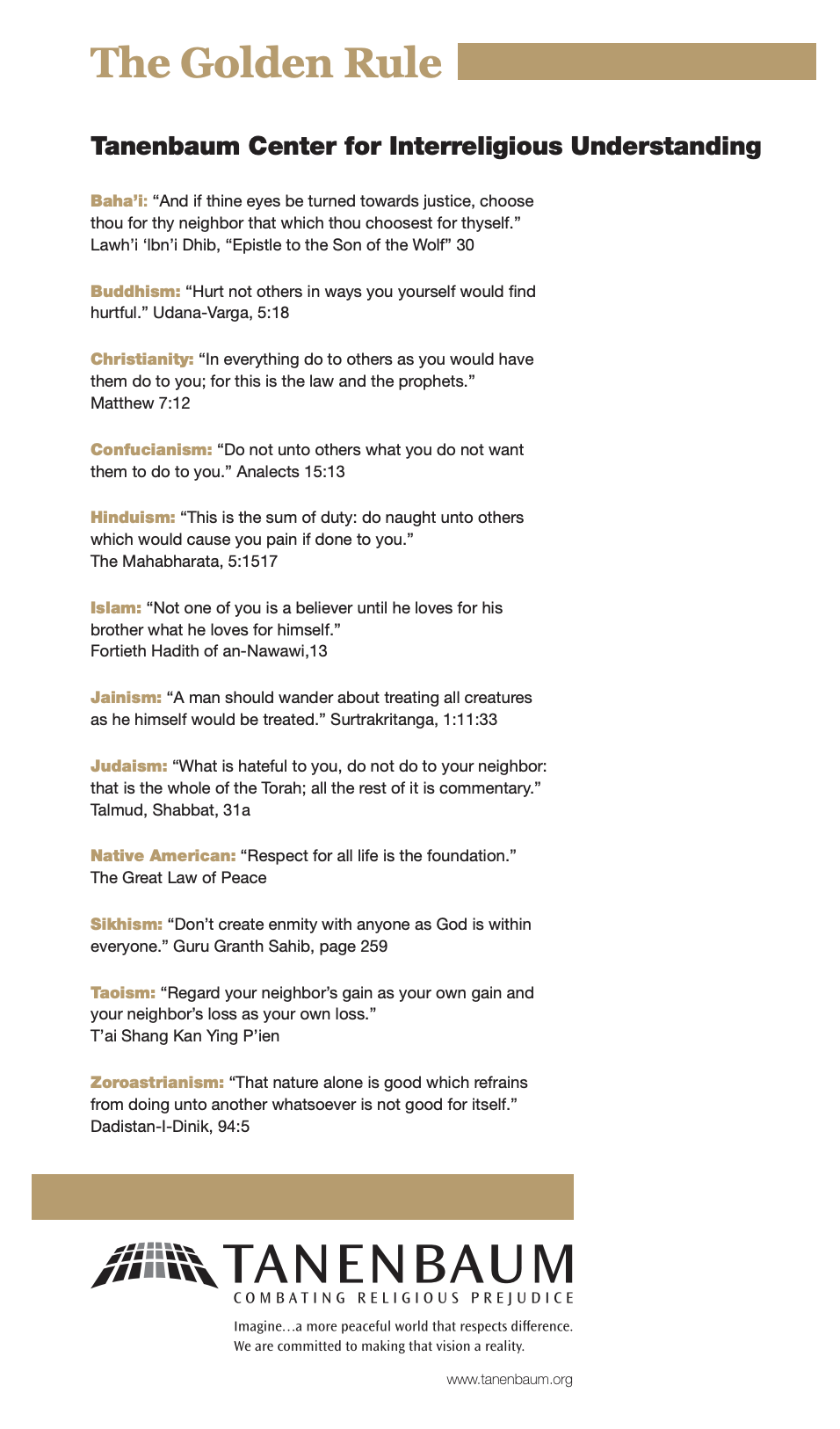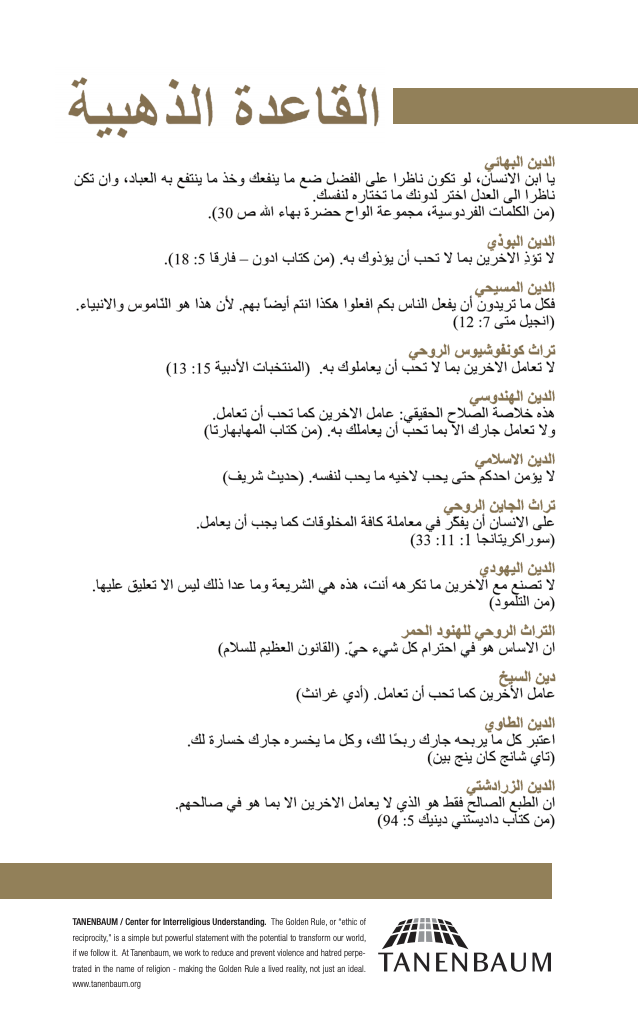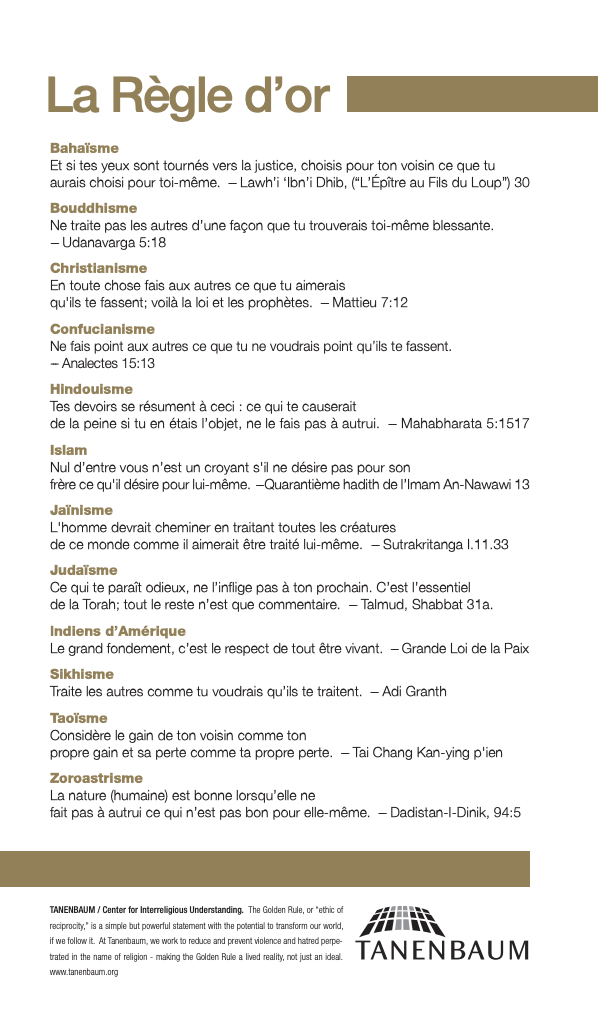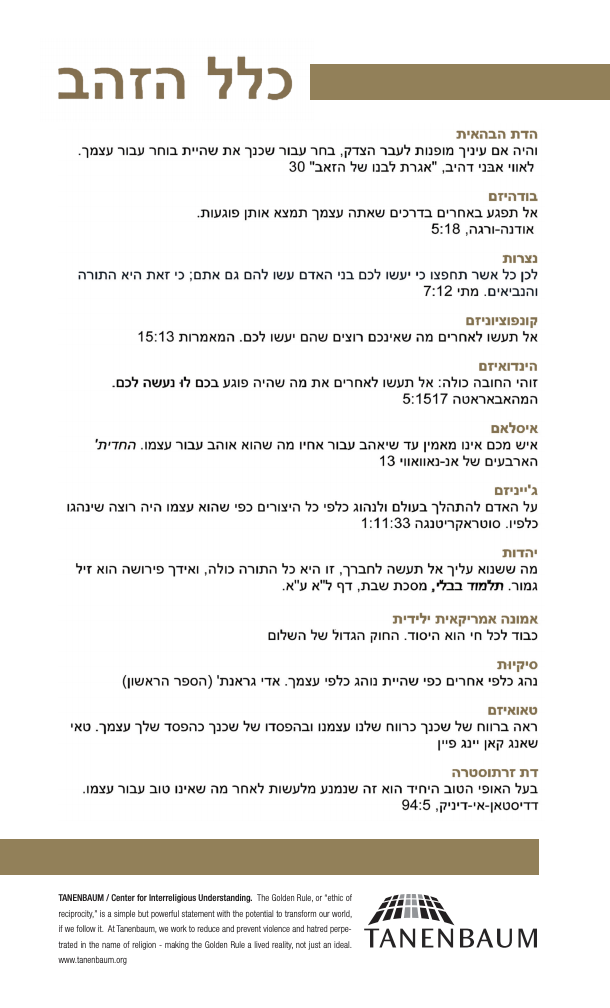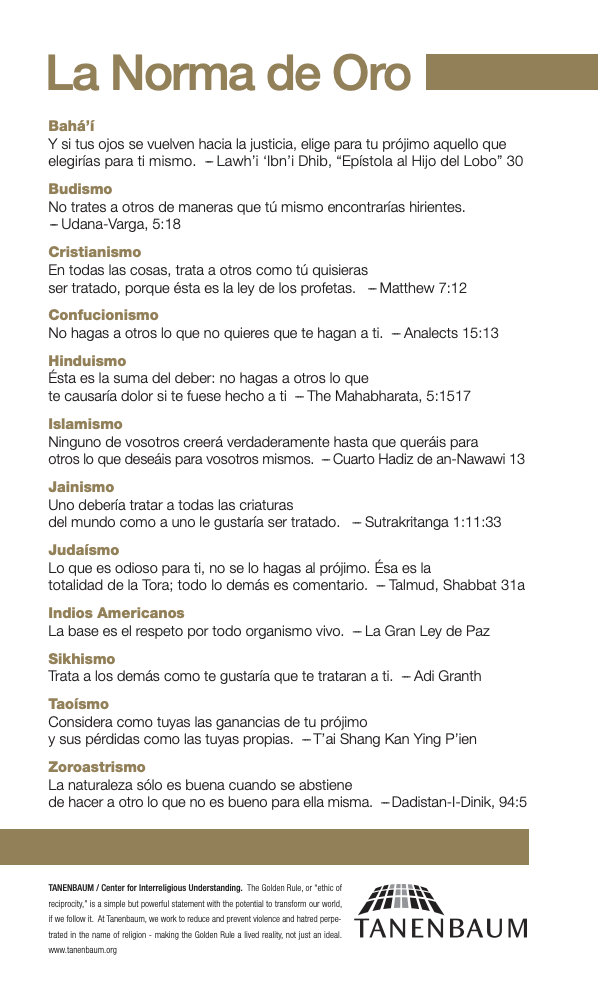The Golden Rule
Below is a Q&A with CEO Emerita, Sr. Strategic Advisor, Joyce Dubensky about what the Rule means to her, why it’s so hard to apply and how it shows the world a different path.
Download the Golden Rule from 12 different religious traditions, in five languages, at the bottom of the page.
The Golden Rule: Why it continues to speak to us – and why we need to listen more than ever.
A conversation with Joyce Dubensky, CEO Emerita, Sr. Strategic Advisor
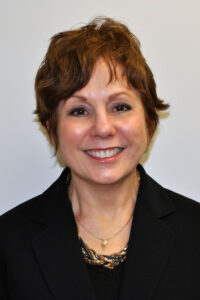 What’s your own understanding of the Golden Rule?
What’s your own understanding of the Golden Rule?
The Golden Rule is meaningful to me because, as a universal value, it can serve as the measure of how to live well in a world of many interesting and exciting differences.
Can you remember a time when following the Golden Rule was a challenge? What made it so difficult?
The application is hard, while the principle is clear. But that doesn’t mean we should forget about it. Applying the Golden Rule in our lives is something we should be constantly working toward. The key is looking for the common humanity in each of us – and using that as our starting place.
Why is this multi-language collection of the Golden Rule so powerful?
Religion is a force in the lives of so many people. Collecting different traditions’ variation of the Rule is a potent reminder that it is a shared mandate and value, and one with the potential to eliminate so much violence – it helps us to recognize one another, to “de-other” the other. Translating the Golden Rule so it can be read around the world only helps foster this understanding.
Why is the Golden Rule so central to Tanenbaum’s mission and work?
Even before I came to Tanenbaum, I wanted to put together something like this, because I believe it makes such a powerful statement. Then I joined Tanenbaum, and it so perfectly represented our focus on reducing intolerance, hatred, and violence perpetrated in the name of religion.
Around the world from Israel and Syria, to Nigeria, Colombia, and Iraq, there’s so much turmoil, so much pain, and religion is almost always implicated even when it’s not the root cause. It’s critically important to make the universality of the Rule as accessible to everyone as possible – as a reminder that there is another way to live.
What concrete steps can people take to put the Rule into practice?
Practically, there are steps that institutions and individuals can take to make a difference.
Institutionally, there are anti-discrimination and accommodation policies you can put into place to ensure that employees aren’t unduly thwarted in their ability to practice their religions. Educational institutions can make sure that teachers are properly trained to create inclusive, multi-cultural and multi-religious classrooms. And hospitals can work proactively with patients who may not want treatment that conflicts with their religion.
There are also things we can all do on an individual level. We can notice people who are not from our own group – people who have different practices or beliefs – and be interested in them. We can be curious about who they are and what their lives are like, without applying stereotypes. We can ask questions with curiosity and respect and truly listen to and digest the answers. And we can be willing to share about ourselves, our own beliefs, and our own experiences.
Finally, we can work together, whether in workplaces, schools, community groups or governments to ensure that people from diverse backgrounds and viewpoints are involved in decision-making. By making all voices heard – and really listening to each of those voices – we can solve many of the problems we face together.
And when we do that, we’ll get to the gold.
